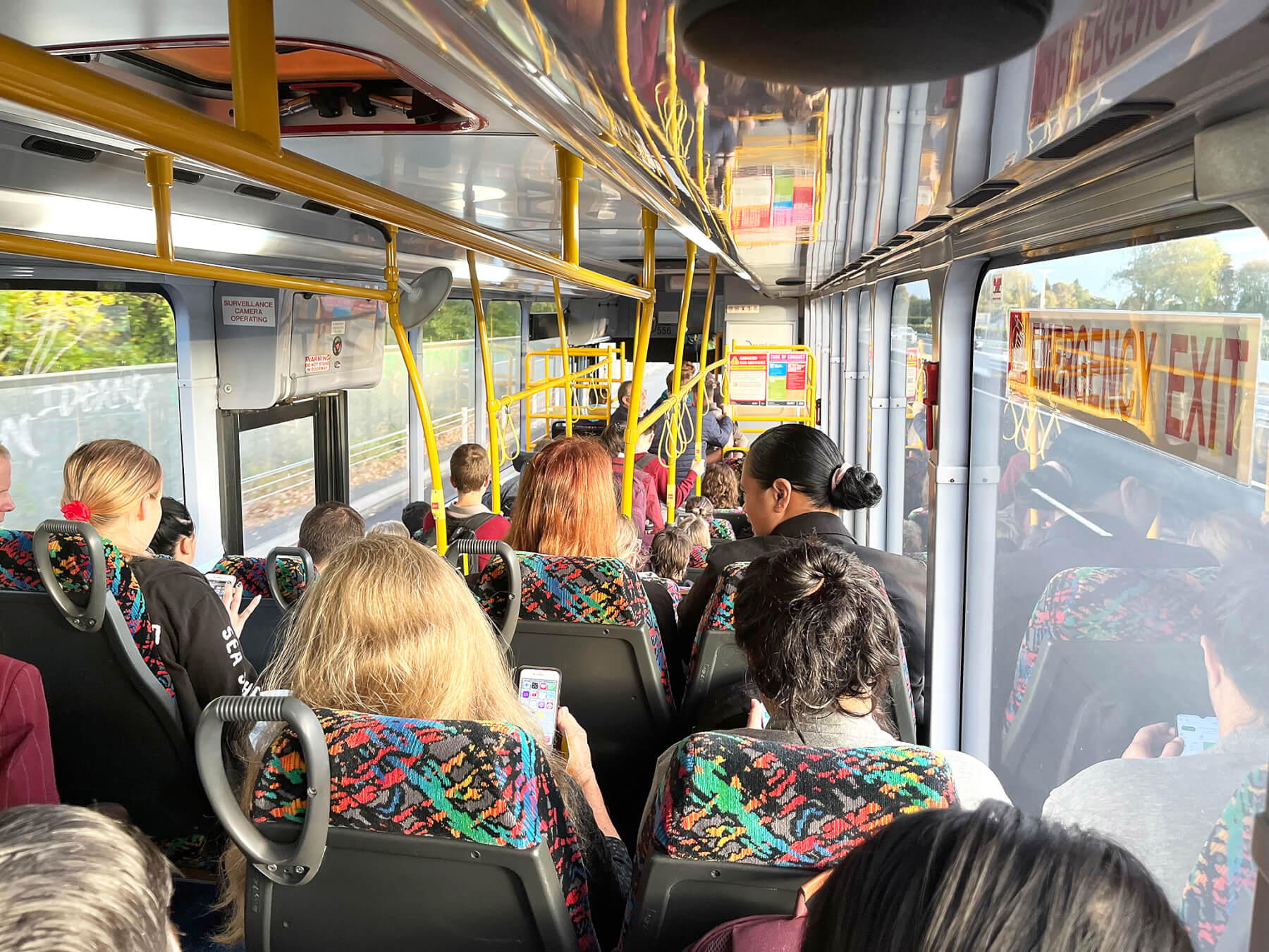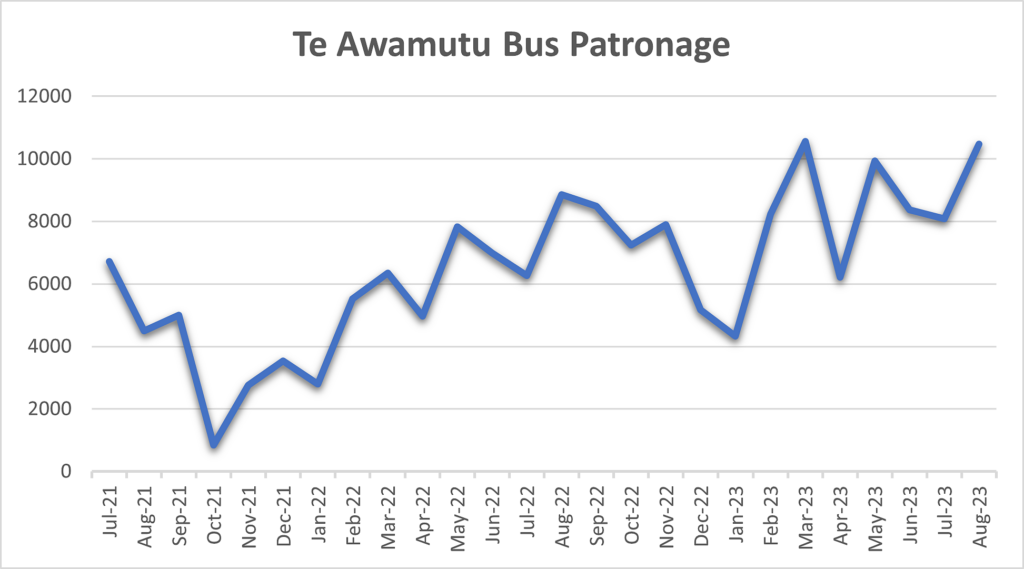
More people are using buses in Waipā – now double decker electric buses are coming.
A double decker electric bus will operate on a return service from Kihikihi through Te Awamutu and onto Hamilton from January 1 next year.
The news was in a report tabled by Waikato Regional Council’s public transport planner Katherine Simpson to the Regional Transport committee on Monday.
Timing is tight for an upgraded Waipā service because of delays in the completion of electric vehicle depots on the land in Kihikihi made available by Waipā District Council to the regional council on a long-term lease.
The regional council knows there are supply chain risks associated with ordering the new electric buses and the charging infrastructure.
“Risk mitigation measures have been put in place to ensure business continuity of the new service delivery model from January 2024,” said Simpson.
The fully electric fleet, replacing gas guzzling diesel vehicles, will include double decker buses from Kihikihi and Leamington. Plus, there will be a significant increase in trip frequency.
Statistics released to The News show regional bus travel from Te Awamutu – and across the district in Cambridge – is exceeding pre Covid levels.
Trip numbers dipped in winter but headed upwards last month with passenger numbers for Te Awamutu at 10,480 and 9217 for Cambridge.
That compares favourably with March when Te Awamutu had 10,565 passengers and 9586 in Cambridge.
Simpson told the Regional Transport committee the new Waipā service from Kihikihi and Te Awamutu – operated by Tranzit Group – would run within the existing regional Te Awamutu 24 timetable.
“The Waipā services originating in Kihikihi will help provide options for those living between Kihikihi and Te Awamutu,” she said.
Two other services travelling through Waipā – in collaboration with Waka Kotahi and district councils in South Waikato, Waitomo and Ōtorohanga – launched in February.
Simpson said more patrons were catching the Te Kūiti 26 and Tokoroa 32 connector services which pick up passengers in Kihikihi, Te Awamutu, Ōhaupō and Cambridge.
The Ministry of Education and Waikato University each contributed $40,000 to fund the 18-month trial and are actively promoting the single trip into Hamilton and back – in time for the academic workday – to their students.
Half-price bus fares across the board in Waikato ended on June 30 but there is still free public transport for children under 13 and for Super Gold card holders who load their details onto an electronic Bee smart card.
Half price discounts have continued for people under 25 and Community Services card holders.
“We are seeing good trends in terms of patronage, driver recruitment and service reliability for the buses,” said Simpson.










